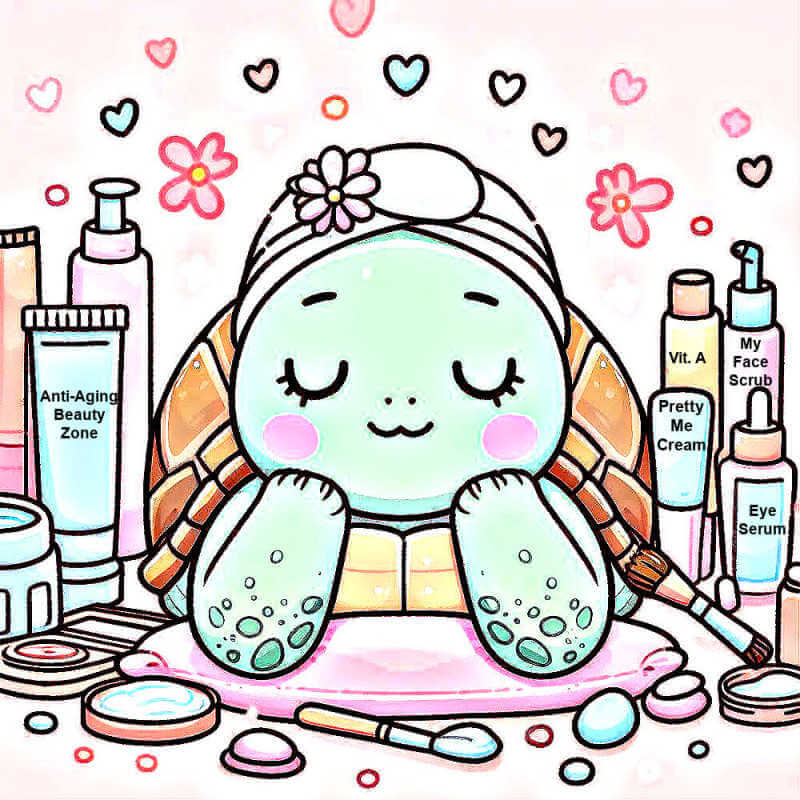- Home
- Anti-aging Resource
- Can I Wear Makeup After Dermaplaning?
Can I Wear Makeup After Dermaplaning?
by Joanne
Hi there.
I've just finished dermaplaning at home, and I'm a bit worried about what to do next. When can I go ahead and put on makeup without causing any issues?
And, are there any important steps I should follow for taking care of my skin after doing dermaplaning on my own?
---------------------------
Hey Joanne!
Thanks for your inquiry about wearing makeup after dermaplaning. That's a great question as many of us are dermaplaning at home and are not sure what to do afterward.
Here's the scoop about applying makeup after dermaplaning treatment:
One of the benefits of dermaplaning is that it helps makeup go on smoothly and look flawless. Why, because Dermaplaning helps get rid of peach fuzz (vellus hair), dirt, and dead skin cells. It essentially creates a fresh surface for skincare products and makeup.
Should you wait before applying makeup?
What really matters is your skin type. Whether it's sensitive, resilient, or somewhere in between, knowing your skin type guides post-dermaplaning choices.
Impact on Different Skin Types:
Understanding your skin type is crucial for best results. For those with resilient skin, makeup application post-dermaplaning may not cause a problem. Especially if you've been doing this treatment yourself, using an at-home non-professional dermablade.
Even still, I usually wait a few hours and let my skin rest and soak in a good quality moisturizer before applying any type of makeup.
My experience: I've been dermaplaning at-home for over a year and my skin is seasoned. It doesn't look inflamed or show signs of distress after treatment. But, it does feel a little sensitive, so I let it calm down for a few hours before applying anything except a good hydrating moisturizer.
However, individuals with sensitive skin should proceed cautiously. The removal of the top layer of dead skin cells and fine hair may leave sensitive skin more prone to irritation.
Sensitive skin tends to react more noticeably to external stimuli, and a dermaplaning procedure, while beneficial, involves a level of exfoliation that may leave your skin temporarily vulnerable.
Here's why:
1. Freshly Exposed Skin: Dermaplaning removes the top layer of dead skin cells, essentially unveiling a fresh layer. While this is fantastic for long-term skin health, the newfound exposure can make your skin more sensitive initially.
2. Micro-Cuts and Irritation: The delicate nature of sensitive skin means that the micro-cuts created during dermaplaning can cause a bit more irritation compared to less sensitive skin. This is a natural part of the exfoliation process, but it means proceeding with caution.
3. Product Sensitivity: Sensitive skin often reacts more strongly to skincare products. If your post-dermaplaned skin is suddenly exposed to makeup, even if it's gentle, it could trigger a reaction.
Signs of Sensitivity After A Dermaplane Facial:
Now, let's discuss how to identify signs of sensitivity after your dermaplaning treatment.
So, how do you know if you should avoid makeup products after your dermaplaning treatment? Look for the following signs:
Redness: A pinkish glow is normal after a physical exfoliation procedure. But if your skin appears more red than usual, it's a sign that the exfoliation might have been a bit too much for your sensitive skin.
Tingling or Burning Sensation: A mild tingling sensation post-dermaplaning is normal, but if it transforms into a burning feeling, it's a signal that your skin needs more time to recover.
Increased Sensation to Touch: Sensitive skin might feel more responsive to touch after dermaplaning. If it feels tender or uncomfortable, it's an indication to be gentle.
Localized Irritation: Areas with pre-existing sensitivity might show more noticeable irritation. If you notice specific spots reacting more than others, it's a cue to proceed cautiously.
If you experience any of these side-effects, stick with a simple skincare routine for a couple of days until skin sensitivity is back to normal. Avoid hot showers, active ingredients (like vitamin C and niacinamide), harsh skincare products (like salicylic acid, glycolic acid, or other chemical peels), and direct sunlight (UV rays).
Finally
In summary, sensitivity post-dermaplaning is normal, and immediate makeup application might make it worse. Give your skin time to settle, opt for a light moisturizer, and observe how it responds. If redness, tingling, or discomfort persist, delay makeup application until your skin feels calm. Patience is the key to enjoying the full benefits of dermaplaning without compromising your skin's well-being.
Get more tips and information, and what you should and should not do right after an at-home dermaplaning facial.
Note: If you have active acne, raised acne scars, ingrown hairs, excessive sun damage, or other skin conditions, check with your dermatologist before using any form of exfoliation.
I hope this answered your question, Joanne. Let me know if you need more information. 😊
Want More?
I share quick routines, beauty tweaks, and what’s working for me — straight to your inbox. Join the Club and get this free Cheek Shaper Video.
About the Author:
Linda Robison is a Facial Fitness Specialist and the founder of Anti-Aging Beauty Zone. With decades of hands-on experience, she shares practical, natural ways to lift and brighten mature skin—without expensive or invasive treatments.
Before you go ....
Please tap on the💙in the bottom right corner if you found this page helpful.
FOLLOW ME FOR MORE TIPS:
SHARE OR SAVE FOR LATER:



